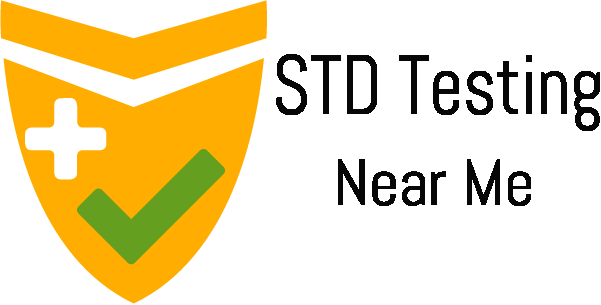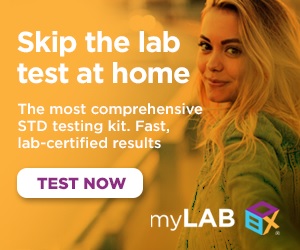STD-test-accuracyThis question pops up in the mind, mostly after a casual sexual encounter (maybe with a stranger or a fling) or upon observing possible STD symptoms on your body. Getting tested for STD is always a best practice to gain the peace of mind, also, it is generally the most reliable way to know if you’ve contracted an STI or STD so that you can start your treatment (if infected).
But we question the accuracy of the STD test every time we are about to test for an STD or after getting the test results. How accurate is/was the test? The answer to this question is certainly more than 90% for most of the tests. Most of the testing centers these days adhere to the strict mandates laid by the HIPAA and are CLIA-certified and FDA-approved laboratory testing facilities. However, this alone is not full proof. There are many factors leading to the accuracy of any tests.
Lets us see which factors determine the accuracy of any STD test.
- Sensitivity & Specificity of the test *
- Positive Predictive Value (PPV) and Negative Predictive Value (NPV)*
- STD window period (Incubation period of STD) *
- Type of STD tests (RNA, antigen, culture test, etc) *
* above explained in a detailed manner after the table
STD accuracy table
The following table indicates the type of test, the best time to get tested for accurate results along with their respective Sensitivity and Specificity.
STD |
Type of Sample |
Types of STD test |
When to test (time span) |
Sensitivity |
Specificity |
| Chlamydia | Blood | Enzyme-linked immunosorbent assay (ELISA); Antibodies, IgM | 1-5 days | 85.70% | 98.10% |
| Blood | Enzyme immunoassay (EIA); Antibodies, IgG | 6–12 weeks | 97.80% | 99.70% | |
| Urine | Cell Culture and Subsequent Detection of Chlamydia by Fluorescent Antibody Test Method | after 2 weeks | 65.00% | 99.60% | |
| Swab | Swab cultures | after 5 days | 77% | 99.00% | |
| Swab | Direct Fluorescent Antibody (DFA) | after 2 weeks | 65% | 99.60% | |
| Gonorrhea | Blood | Enzyme-linked immunosorbent assay (ELISA); Antibodies, IgM | After 6 days | 99% | 98% |
| Urine | Nucleic Acid Amplification (NAA) | After 2 weeks | 97.60% | 100% | |
| Swab/Blood | Gonorrhea swab cultures | after 3 days | 95% | 98% | |
| Swab | Gram Stain | after 96 hours | 90% | 98% | |
| Herpes | Swab | Herpes viral culture | 4 to 6 weeks | 50% | 100% |
| Swab | Polymerase chain reaction (PCR) test | After 6 days | 92.30% | 97.50% | |
| Blood | Antibody tests | 3 to 4 weeks | 93% | 95% | |
| Swab | Herpes virus antigen detection test | after 10 to 12 days | 90% | 98% | |
| Syphilis | Blood | Venereal disease research laboratory (VDRL) test | 3 to 5 weeks | 50% | 99.80% |
| Blood | Rapid plasma reagin (RPR) test | 4 weeks and later | 52.50% | 94.30% | |
| Blood | Rapid immunochromatographic test | after 3 to 4 weeks | 84.10% | 95.30% | |
| Blood | Enzyme immunoassay (EIA) test | after 2–3 weeks | 82% | 99% | |
| Blood/Spinal fluid | Fluorescent treponemal antibody absorption (FTA-ABS) test. | after 13 weeks | 73% | 100% | |
| Blood | Treponema pallidum particle agglutination assay (TPPA). | after 21 days | 85% | 98% | |
| Swab | Darkfield microscopy | after 9–90 days | 79% | 98% | |
| Blood | Microhemagglutination assay (MHA-TP). | 3 weeks | 68.50% | 82.30% | |
| Hepatitis B | Urine | HBsAg (hepatitis B surface antigen) | 6 weeks | 90% | 99.50% |
| blood | Anti-HBs or HBsAb (hepatitis B surface antibody) | 7 weeks | 88.80% | 100% | |
| blood | Anti-HBc or HBcAb (hepatitis B core antibody) | 7 weeks | 90% | 78.90% | |
| Hepatitis C | Urine | HCV Antibody Testing | 8 to 9 weeks | 99% | 99% |
| blood | HCV Viral Load Testing | 14 to 180 days | 98% | 99% | |
| Home Testing kit | HCV Genotypic Test | 7 to 8 weeks | 99.50% | 98.80% | |
| HPV | Blood:DNA | Direct: Genome detection | after 3-5days | 96% | 85% |
| Blood:DNA | Amplification | 10 days | 96% | 33% | |
| Blood:DNA | Amplification and genotyping of HPV-16 and HPV-18 | After 5 days | 95.80% | 88.90% | |
| Blood:RNA | Amplification of E6/E7 proteins | 18 days | 71.80% | 58.30% | |
| Blood:RNA | Monoclonal antibodies | after 10 days | 87% | 100% | |
| Swab | PAP Smear | 4 weeks to 8 months | 92% | 23% | |
| Trichomonas | Urine / vaginal fluid | Urinalysis | 5 to 28 days | 82% | 97% |
| Rapid | Antigen (RADT) | 13 days | 68.20% | 89.70% | |
| Blood | nucleic acid amplification | 7 to 21 days. | 96.00% | 95.30% | |
| HIV | RNA/DNA | PCR/Viral load | 7 days | 85.70% | 98.10% |
| Antigen | p24 only test (Ag) | 2-8 weeks | 58% | 99.90% | |
| Antigen & antibody | 4th generation Antigen and Antibody (Ag/Ab) tests | 4 weeks | 95% | 99.78% | |
| Antibody | 1st/2nd/3rd generation antibody only tests (ELISA,ELI, MEA/ELFA/ECLIA) includes OraQuick | 18 to 45 days | 88.20% | 99.70% | |
| Antibody | Rapid tests: finger prick and oral swab test are antibodies only: includes OraQuick | 2 to 4 weeks | 75% | 96% |
Download this entire table in one sheet
Let’s see each factor determining the accuracy of any STD test in detail.
Download: STDcheck.com’s test result for your reference
Sensitivity & Specificity of the test
Definition: Sensitivity is the ability of a test to identify patients that have the disease.
So if 10 people have a disease and eight of ten of those patients as being positive. Then those are true positives. Sensitivity then is 80%. Rest two of those patients, however, are going to be negative, even though they have the disease and those are called false negatives.
So when a test that is highly sensitive is good for ruling out disease, when the test is negative (test result).
Definition: Specificity of the test, is its ability to identify those without the disease.
10 people don’t have any disease. So if 7 out of 10 patients have been tested negative because they don’t have the disease and it didn’t show in the test as well. So those are truly negative and the Specificity of the test is 70%. So, 3 of them have been indicated as positive, even though they don’t have the disease. Those are referred to as False positive.
So when the test is specific is good at ruling in the disease when test positive
Positive Predictive Value (PPV) and Negative Predictive Value (NPV)
Positive predictive value is the ability to detect the presence of disease. It measures the probability of having the disease when the test is positive.
Negative predictive value is the probability of not having the disease when the test is negative.
Know in more depth: Sensitivity, Specificity, Positive and Negative Predictive value
STD test window period or the Best time to get tested for STD
Some STDs take time to get detected in the clinical test. This is known as their Incubation period. STD testing window is the time between getting an STD and having it show up on a test.
So if you get tested during this window, you may get a False Negative result thus hampering the accuracy of the test.
Type of STD tests (RNA, antigen, culture test, etc)
Different types of Tests have a different level of accuracy. This is because some STD tests look directly for the infecting bacteria, while others look out, indirectly, for the bacteria/virus presence.
Following are the types of test and the thing they look to detect bacterias/viruses
Urine test for STD
Urine testing is currently primarily used to detect bacterial STDs. Best fit for Chlamydia, Gonorrhea test.
Bacterial culture test for STD (swab sample is preferred)
Bacteria culture test involves growing bacteria, this test is applicable to see if the patient has a bacterial infection. This test is more accurate than the Urine test as culture (test) can detect even very low numbers of bacteria, thus the sensitivity of this test is high. Thus asymptomatic Chlamydia and Gonorrhea can be detected using this test.
Antibodies/Antigen test (Blood test)
As the name suggests, this test does not identify the actual bacteria or virus, rather it looks out for immune proteins (called antibodies) that your body produces (to fight) in response to the infection. Herpes can be detected using an IgG antibody test. HIV,/Hepatitis can also be detected using the Antibody/Antigen test.
The difference is Antigens are molecules whereas Antibodies are proteins capable of stimulating the immune response.
Viral load test (HIV blood test)
This test is used to detect HIV, wherein the actual calibration of virus or amount of virus is calibrated in a given blood sample.
Bacterial DNA/RNA test for STD
Instead of growing bacteria, these tests look for bacterial DNA in the sample. HIV RNA test detects the genetic material of the virus itself.
VDRL test (Blood test)
The Venereal disease research laboratory test is a blood test used to determine the presence of syphilis is blood.
Visual diagnosis
For STDs like HPV the visual test to detect genital warts is sufficient.
Review of some of the STD testing clinics
STD Check
- Certification: FDA-approved laboratory tests and CLIA-certified
- Trusted Source
- +4500 labs
- Tests for: Every STD: Chlamydia, gonorrhea, syphilis, hepatitis A, hepatitis B, hepatitis C, herpes simplex virus-1 and -2, HIV. (Covered in 10 test panel available at a discounted rate)
- Result turnaround time: 1 to 2 days
- Cost: $24 to $349
- Physician support included: Yes — phone consultation with a healthcare provider after a positive test result
Shop on STDcheck.com with $10 discount coupon inside
Healthlabs.com
- Certification: CLIA-certified and FDA-approved laboratory
- Tests for: Chlamydia, gonorrhea, hepatitis A, hepatitis B, hepatitis C, herpes simplex virus-1 and -2, HIV, syphilis, trichomoniasis
- Result turnaround time: 2 to 8 business days
- Cost: $52 to $198
- Physician support included: Yes — condition counseling and prescription when eligible
Healthlabs.com isn’t active in North Dakota, Rhode Island, New York, New Jersey, Maryland, and Hawaii.
Shop on Healthlabs.com
myLAB Box (testing from comforts of your home)
- Certification: FDA-approved laboratory tests and CLIA-certified
- Trusted Source
- Tests for: Chlamydia, gonorrhea, hepatitis B, hepatitis C, herpes simplex virus-1 and -2, HPV, HIV, mycoplasma, syphilis, trichomoniasis
- Result turnaround time: 2 to 8 days
- Cost: $79 to $369
- Physician support included: Yes — phone consultation with a healthcare provider after a positive test result
Shop on myLABBox.com.
Health Testing Center
- Certification: CLIA-certified and FDA-approved laboratory tests
- +3000 lab Network
- Tests for: Chlamydia, gonorrhea, hepatitis C, herpes simplex virus-2, HIV, HPV, mycoplasma, syphilis, trichomoniasis, ureaplasma
- Result turnaround time: 2 to 8 days
- Cost: $89 to $444
- Physician support included: No —
Not currently available in 5 states: MA, MD, NJ, NY, and RI.
Shop on Healthtestingcenter.com


